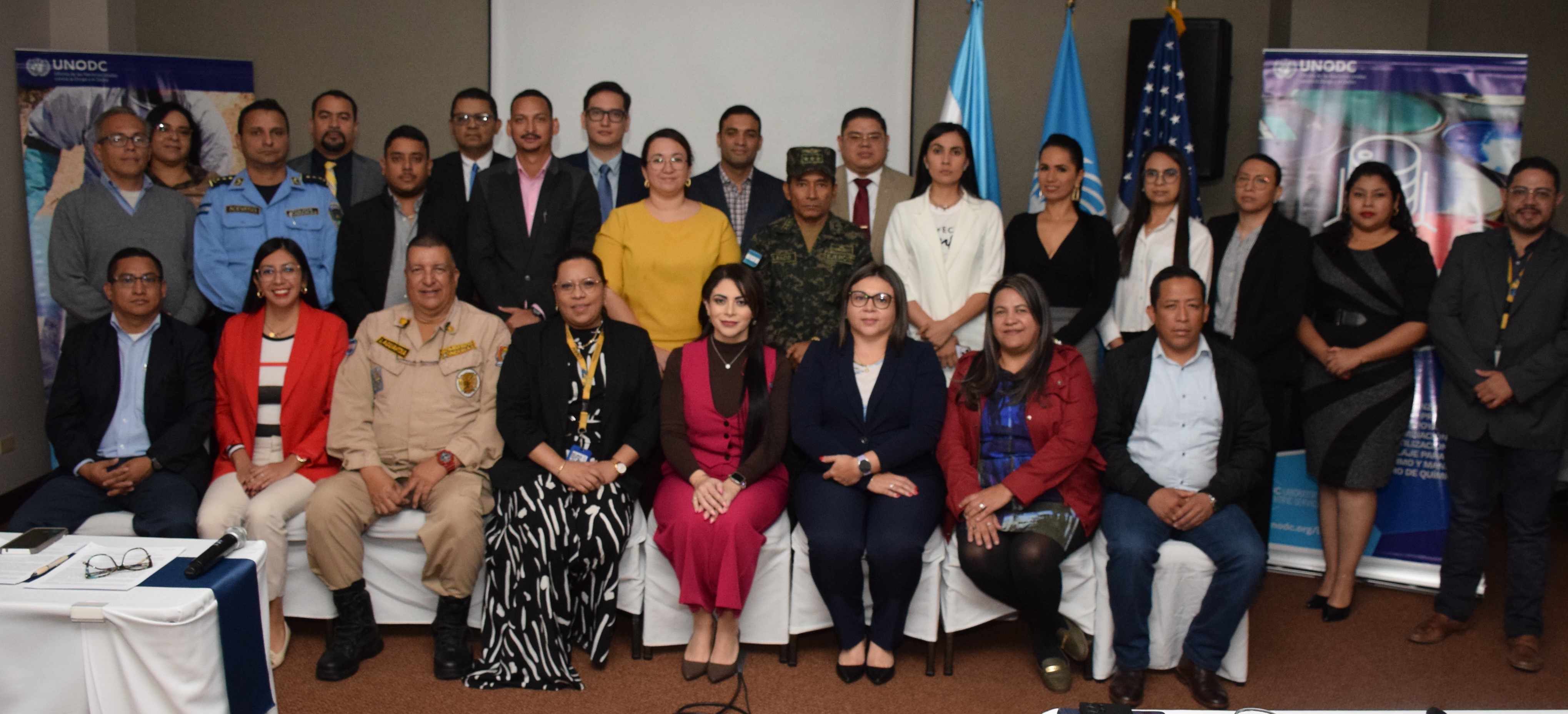Honduras, February 8, 2024 – In a crucial initiative to address the problem of drug trafficking and the proliferation of chemical precursors used in the manufacture of illicit drugs, the United Nations Office on Drugs and Crime (UNODC), through the Regional Program for the Safe Handling and Disposal of Seized Drugs and Chemical Precursors (STAND), has facilitated a workshop for the socialization and analysis to formalize a state coordination mechanism through the establishment of the Interinstitutional Commission on Drugs and Chemical Precursors (CIDROPREQ).
Since 2022, the STAND Regional Program has been working in Honduras, implementing technical training processes, conducting final disposal exercises, and promoting the exchange of international best practices. In November 2023, they presented the National Capacity Assessment for the Safe Handling and Disposal of Seized Drugs and Chemical Substances – Honduras, highlighting the need to develop an instrument that allows for the creation of an interinstitutional coordination and communication space to address these issues, as well as analyze and implement policies, strategies, and studies to combat drug trafficking in the country.
Following the course of these actions, a space was promoted for the proposed institutions to integrate CIDROPREQ and participate in the analysis and discussion of the applicable legislation for its creation. The workshop facilitated discussions on the integration of the Commission, its attributions, as well as the coordination and work mechanisms through interinstitutional consensus. CIDROPREQ aims to be the advisor and promote state coordination and communication to strengthen the state's response in its fight against drug trafficking and the diversion of precursors and chemical substances used in the manufacture of illicit drugs.
The workshop included the participation of public officials from various institutions and government agencies, all of whom have direct and indirect competencies in administrative, operational, and interdiction controls related to drugs, precursors, and chemical substances. Additionally, an invitation was extended to those involved in the investigation, prosecution, and sanctioning of these crimes, as well as to academic entities and international cooperation organizations. The diversity of participants reflects Honduras' joint commitment to combating this scourge.
These actions were carried out thanks to the financial support of the Narcotics Affairs and Law Enforcement Section (INL) of the Government of the United States of America.

